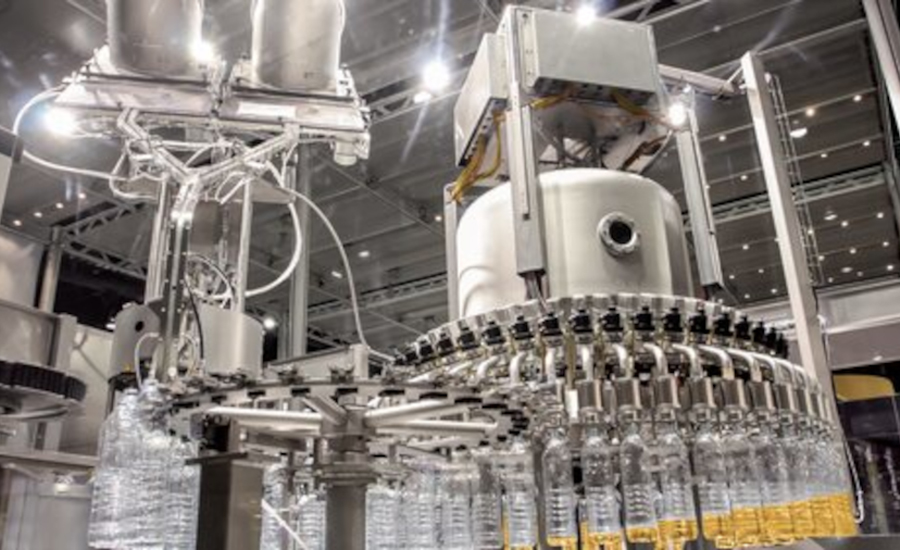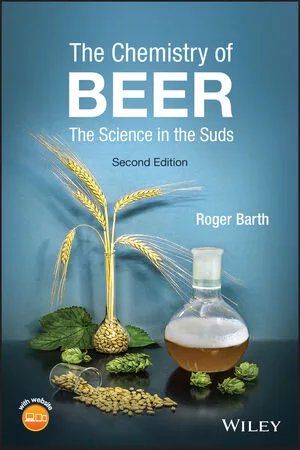Lubricants help operations meet sustainability goals
Food grade lubricants help optimize beverage-processing machinery

Image courtesy of Getty Images
The phrase “quality over quantity” expresses the idea that it’s better to have a few things of high value or standard than many things of low quality or worth. This concept can apply to both tangible and intangible things such as products and relationships.
For instance, within the beverage industry, experts note that using high-quality lubricants in beverage-processing machinery not only enables manufacturers to ensure product safety, but also can help companies in achieving sustainability goals.
“Sustainability is making lubricant manufacturers develop more effective and long-range performing H1/food grade lubricants.”
— Jim Girard, executive vice president and chief marketing officer at Lubriplate Lubricants Co.
Jim Girard, executive vice president and chief marketing officer at Newark, N.J.-based Lubriplate Lubricants Co., notes that, as product safety is the top priority for beverage manufacturers, H1/food grade lubricants play a major role.
“H1/food grade lubricants are required for lubrication of beverage processing machinery, for example seamer/closing machines,” Girard says. “Also, the actual manufacturing facility should be ISO-21469 certified. Lubricants manufacturers must continue [research and development] (R&D) to develop more H1/food grade products for incidental contact.”
Yet, as lubricant manufacturers continue to develop products that further meet safety requirements, Girard points out that “sustainability is making lubricant manufacturers develop more effective and long-range performing H1/food grade lubricants.”
Klüber Lubrication, Munich, Germany, in a recent whitepaper titled, “Sustainability and food safety,” highlights how food and beverage producers are using special lubricants to achieve their sustainability goals.
“One contribution to the sustainability goals of food and beverage processing companies, that is often underestimated, is that of high-quality specialty lubricants — particularly those that are provided together with individual consulting services,” the report states. “These lubricants can be particularly instrumental in substantially optimizing production factors like waste reduction, energy efficiency, water consumption and workplace safety.
“For years, the global food industry has been seeing rising demand for products that are manufactured under considerations of resource conservation and the safety of employees and consumers,” the report continues.
Further, as sustainability now plays an important role in consumers’ everyday buying decisions, the report points to sustainability issues as having morphed into a key competitive factor for food and beverage companies.
“This trend poses a risk to companies: the threat of a detrimental impact on their image if they choose to ignore these issues,” it states. “Small solution with big sustainable effect — specialty lubricants.”

Solutions for the future
Aside from addressing sustainability issues and product safety, experts note that using high-quality lubricants also deliver cost savings and increased efficiency in food and beverage production.
“For instance, thorough examinations of production steps can reveal potential savings in terms of energy, emissions, materials management and control, risk management, waste or water consumption," according to the Klüber report.
Moreover, the report suggests that sustainability and operational goals should go hand in hand with high-quality lubricant solutions, noting that individually tailored service packages can assist food and beverage producers with reaching sustainability goals in various areas:
- Materials and waste
- Energy savings and emissions
- Safety
- Water
“In each of these areas, sustainable solutions also offer economic benefits,” the report states. “In addition, optimized tribological solutions usually also result in longer uptimes and longer service life of machines, therefore lowering maintenance and operating costs.”
Lubriplate’s Girard stresses the importance of continued technological developments in the formulations of H1/food grade 100% synthetic, long-life lubricants that provide lubrication protection for food- and beverage-processing machinery worth hundreds of thousands of dollars.
In a Lubriplate white paper titled, “The Continuing Evolution of Food Grade Lubricants,” Girard notes that although both petroleum-based and synthetic lubricants “effectively do the job,” synthetic H-1/food-grade lubricants provide significant oxidation resistance versus petroleum-based H-1 food-grade oils.
“[Synthetic lubricants] also provide significantly better cold temperature operating capability. In combination with food-grade additives, PAO-based food-grade H-1 fluids are outstanding lubricants for air compressors, oil recirculating systems, hydraulic systems and gear reducers,” Girard explains in the report. “Their initial high cost is more than justified by their long-range performance.”
Moreover, in highlighting how companies can take full advantage of potential savings, while meeting the requirements for the use of lubricants such as the H-1 registration by the U.S. National Sanitation Foundation (NSF), Girard reiterates the importance of technological advancements.
“The most important aspect in the evolution of food-grade lubricant technology is that H-1/food-grade lubricants can now effectively handle every machinery lubrication application at a food and beverage-processing plant,” Girard says. “This produces lubricant inventory consolidation, is good for the food and beverage-processing plant employees, and — most important — gives added protection to the ultimate consumer.”
Looking for a reprint of this article?
From high-res PDFs to custom plaques, order your copy today!







